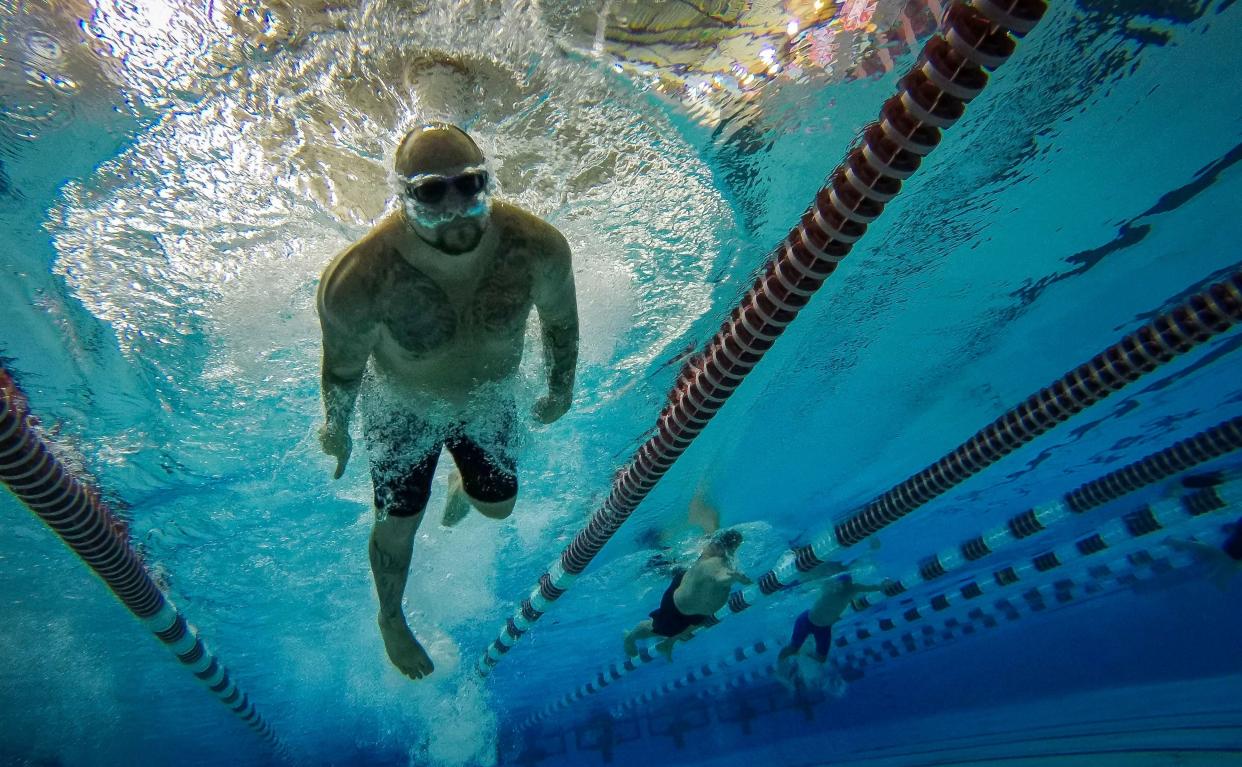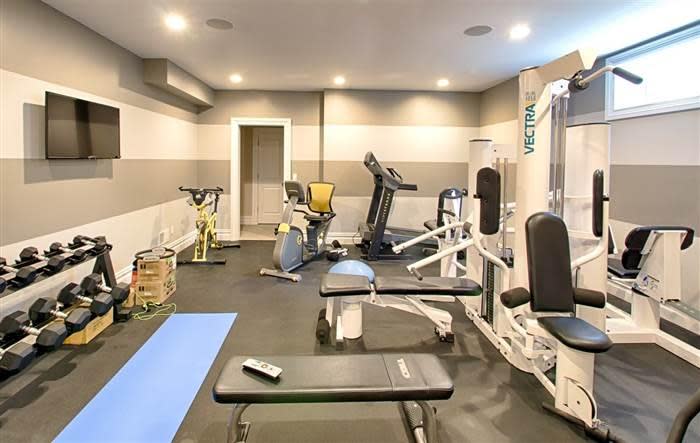What it really means when you smell chlorine at the pool (and five other vile gym facts)

Ever gone near the pool at a gym or recreation area, and sniffed that distinctive tang of chlorine, knowing that it means everything is clean?
Think again.
The smell of chlorine actually becomes more pungent when there’s dirt in the water – and some organisms are chlorine-resistant.
Cryptosporidium is responsible for many diarrhoea outbreaks – and can be transmitted via swimming pool water.
The NHS advises swimmers to keep their mouths shut and avoid swallowing pool water.
But that’s far from the only health risk you face in the average gym: from vaginal yeast on benches to antibiotic-resistant infections on weights, here’s some of the hidden risks.
The gym equipment

The good news is that most gym weights have clear instructions that each user should wipe them down after using them.
The bad news is that plenty of people completely ignore this advice.
The result is that many weights racks are breeding grounds for bacteria – and other ‘shared’ areas of the gym can be even worse, with antibiotic-resistant bacteria present.
‘I’ve even found MRSA on an exercise ball in a gym,” says Dr Philip Tierno, author of The Secret Life of Germs.
Your water bottle
Many reusable gym water bottles show traces of ‘coliform’ bacteria – the sort that’s found in human faeces – due to people’s poor handwashing habits.
Research by Treadmill Reviews found that many gym bottles are actually dirtier than dog bowls.
The yoga mat
You might not feel quite as serene when stretching out on a gym mat if you were aware of what else was living there.
Cold and flu germs can live happily for hours outside the body, and you may well be lying in other people’s, experts have warned.
‘If you swab a yoga mat you probably are going to pick up viruses and certainly funguses,’ says Dr Seth Rankin, a GP and chief executive of the London Doctors Clinic.
The towels
After all that sweating, there’s nothing better than plunging your face into a nice fluffy towel,
right?
Sadly, gym towels aren’t regulated by the same rules that apply to, say, hotels – meaning that the gym’s own towels could be a breeding ground for dangerous bacteria.
Dr Ron Cutler, an MRSA expert at the University of London, told the Daily Mail, ‘I would strongly advise people to take their own towel to the gym. In hospitals, you know that bedding and towels are cleaned to a certain level, but in a gym you have no idea.’

 Yahoo News
Yahoo News 

